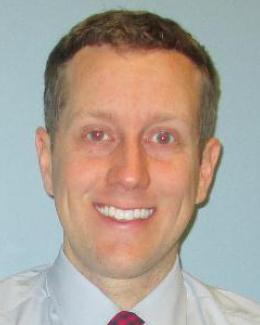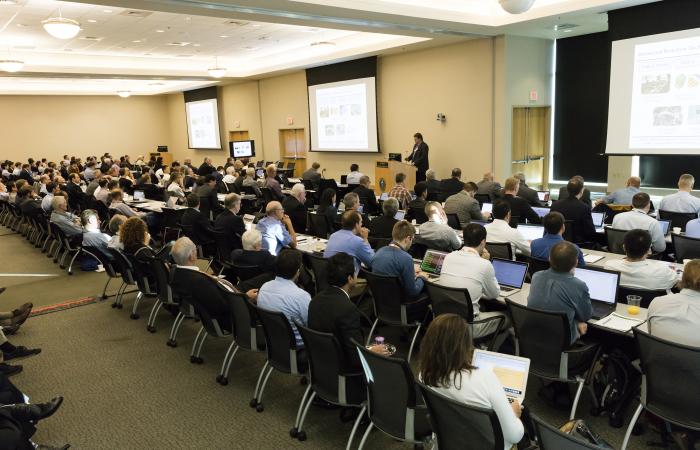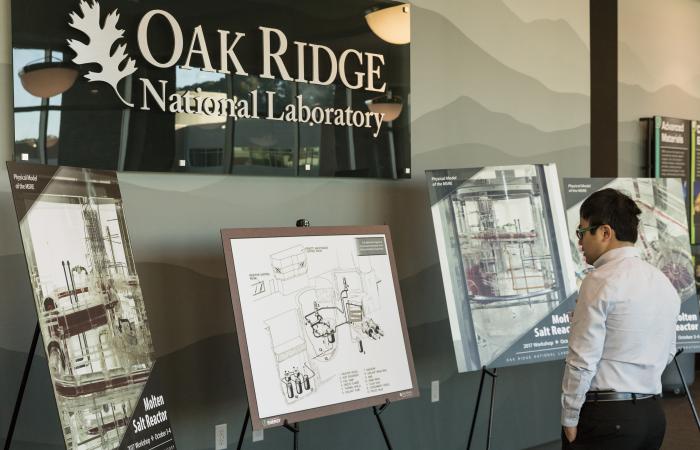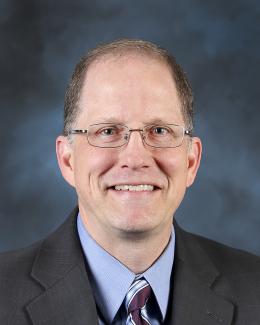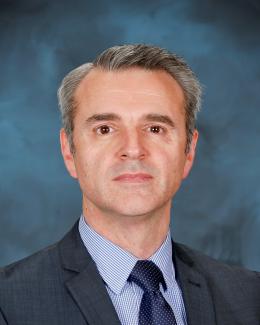October 5, 2017 – The third annual Molten Salt Reactor Workshop allowed leading voices on advanced reactors—including scientists from the national laboratory system, the Nuclear Regulatory Commission, reactor design firms and universities—to discuss current efforts in molten salt reactor work and pursue potential collaborations in the development of the technology for commercialization. The Department of Energy’s Oak Ridge National Laboratory again hosted the Oct. 3-4 event.
“What I really like about the event is the continued focus that I believe will lead to positive outcomes,” said Alan Icenhour, associate laboratory director for the Nuclear Science and Engineering Directorate. “There’s a real practical cadence to how information is rolled out to attendees, which then generates the types of conversations needed to move forward in research, development and deployment.”
More than 200 attendees heard presentations on topics from molten salt chemistry to MSR fuel modeling techniques. Lou Qualls, ORNL nuclear engineer and the new national technical director of MSRs, discussed his role in serving as a liaison between industry and DOE; ORNL’s Ben Collins talked about an effort he’s leading to develop an MSR multiphysics core simulator; and NRC reviewed its strategy on building an action plan for licensing MSRs.
As in years past, the two-day workshop also offered a specific focus for a portion of the meetings. In 2015, the event revisited ORNL’s Molten Salt Reactor Experiment on its 50th anniversary, and in 2016 attention centered on the next steps in moving MSRs forward. This year’s workshop focused on the rapid pace of MSR development, with an emphasis on safety and licensing topics.
“Many of our scientists have decades of expertise in understanding the issues around MSRs,” Icenhour said. “Couple that with the expertise ORNL brings in the licensing arena and knowledge in what is needed to move forward with a reactor design—you then have the perfect combination to lead these conversations.”
Involvement of industry experts, such as Southern Company Services and TerraPower—two companies working with ORNL researchers on an MSR design—remains crucial to the event’s ongoing success. As companies move closer to bringing designs to completion, the national laboratory system’s support is critical in areas such as modeling and simulation, materials science, and instrumentation and control.
ORNL’s Andrew Worrall, a nuclear engineer and the new deputy director of DOE Office of Nuclear Energy’s Gateway for Accelerated Innovation in Nuclear, believes the public–private partnerships will help deliver on the next generation of nuclear reactors.
“It’s about taking this amazing intellectual horsepower that the labs have—in terms of facilities and capabilities—and enabling access for our industry colleagues,” Worrall said. “It’s that tremendous investment over decades by DOE in the labs, people and facilities that has pushed the United States to its leadership position in nuclear energy, and industry couldn’t be expected to do that alone.”
DOE-NE, through GAIN, sponsored a portion of the 2017 workshop. ORNL is managed by UT-Battelle for the Department of Energy’s Office of Science, the single largest supporter of basic research in the physical sciences in the United States. DOE’s Office of Science is working to address some of the most pressing challenges of our time. For more information, please visit energy.gov/science.
